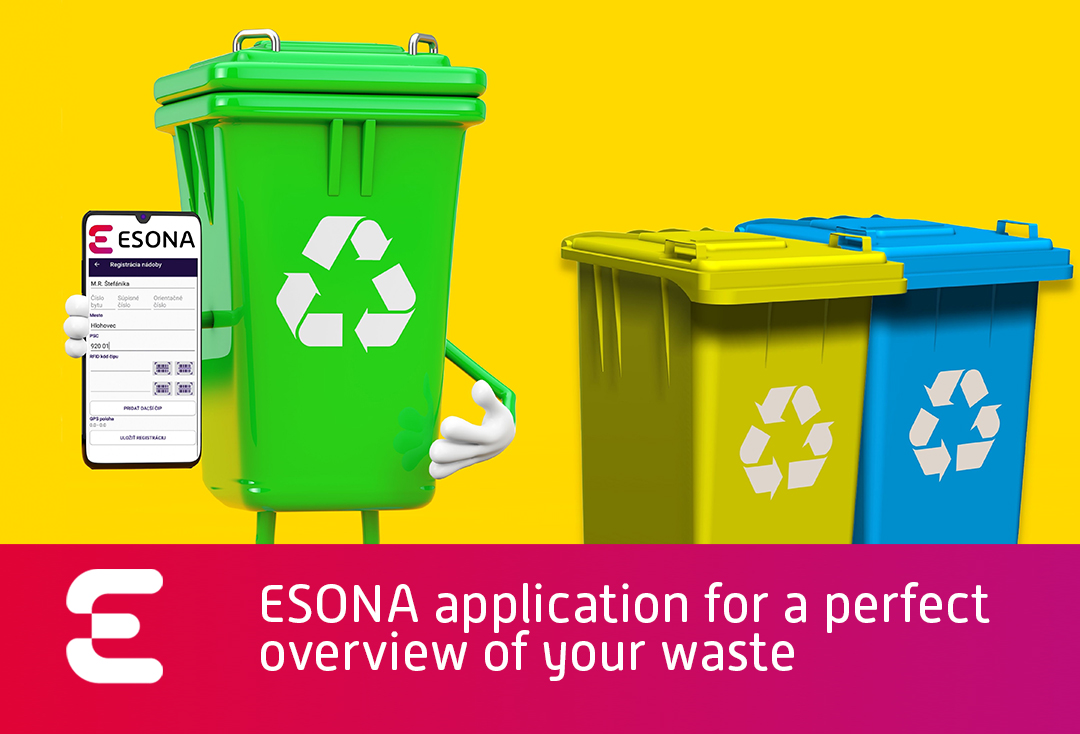We live in a time when we have applications for almost anything. In this article, we would like to look at the application of waste management. It must be said at the outset that this is a very interesting and beneficial application from the workshop of a Slovak developer, MIM from Žilina.
You pay exactly how much waste you produce
ESONA is designed for intelligent monitoring of waste exports, and we see great potential in it and anticipate its great future. It is already used by some towns and villages in Slovakia and export companies are being added. It should be noted that this application supports the bulk collection, where you pay for the exact amount of exported waste.
In the case of container-interval collection, the amount of the fees depends on the frequency of exports and the size of the vessels used. This form is suitable, for example, for residents living in apartment buildings.
The second form is less common when the municipality also takes into account the real number of exports in the amount of the fee. In this case, the exported waste from individual households is monitored using tokens, barcodes, and QR codes, or using so-called RFID chips. The waste charge is then based on the amount of waste actually exported.
The more a citizen sorts, the less mixed municipal waste it produces and the less it pays in mixed waste fees.
A detailed analysis of data on municipal waste production for the period 2010 to 2018 shows that the introduction of volume collection in combination with export monitoring (eg through tokens, bar codes, and/or QR codes or RFID chips) reduces the amount of mixed waste by almost 31 %. According to another study published by the Institute of Environmental Policy (IEP) of the Ministry of the Environment of the Slovak Republic, bulk collection in Slovakia significantly reduces the production of mixed municipal waste and increases the sorting rate.
The quantitative system, therefore, means that citizens pay for each waste container provided with a barcode and QR code or the so-called RFID chip.
With significant savings for all parties involved
Municipalities and cities could save significant sums on ever-increasing landfill fees by introducing the quantitative waste collection. The added value for municipalities is e.g. that, on the basis of the transparent export data obtained, it can provide its citizens with more information and better services. Export records enable local governments to implement quality decisions and bring transparent relations and order to the waste management system.
The system also brings a number of benefits for citizens who see in the client zone exactly what the city administration is about. They can get a perfect overview of when their container was emptied, how much waste they produced, where their waste was taken, and how much it will ultimately cost them. Another benefit is an overview of assessments and payments, the possibility of online payment, information on changes and exemptions in exports, and important information of the city on waste.
Residents are motivated by fair fees to sort waste and thus significantly help its recycling. In the relationship between municipalities and export companies, thanks to the data on the actual number of exported collection containers, objective invoicing for the handling of containers and minimization of export complaints is ensured. In relation to citizens, the addressable system for monitoring the actual number of exports is non-anonymous, which leaves room for motivating citizens to more significantly separate waste and to take responsibility for the waste generated.

